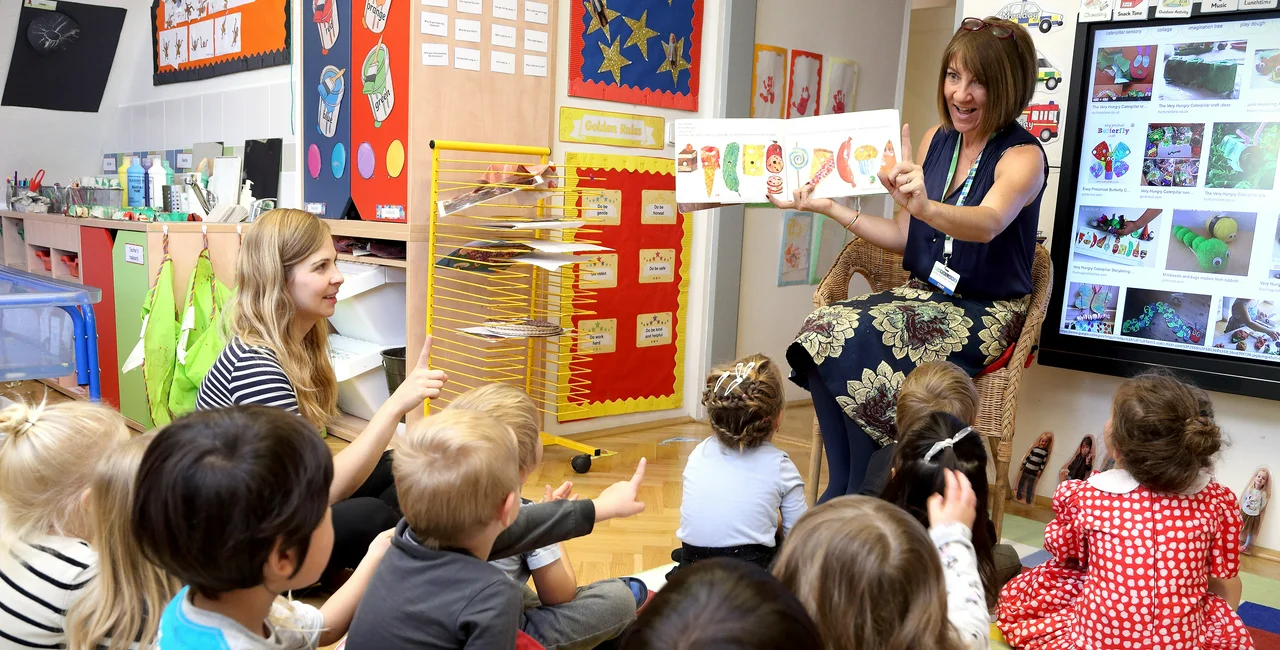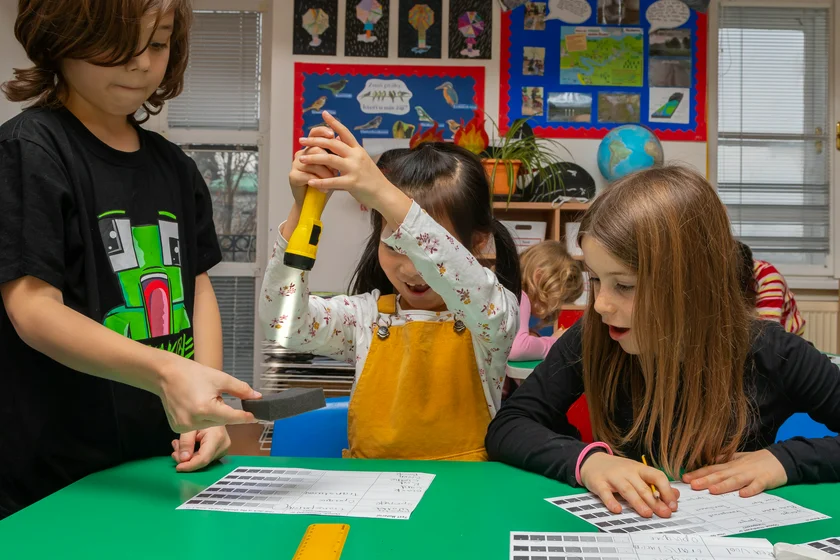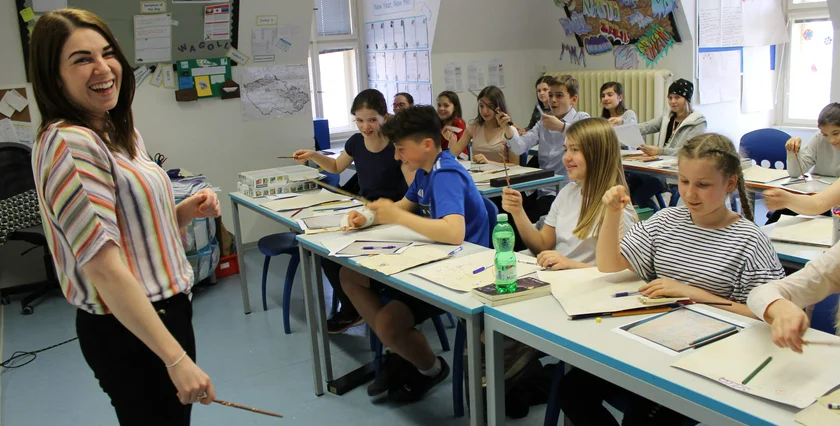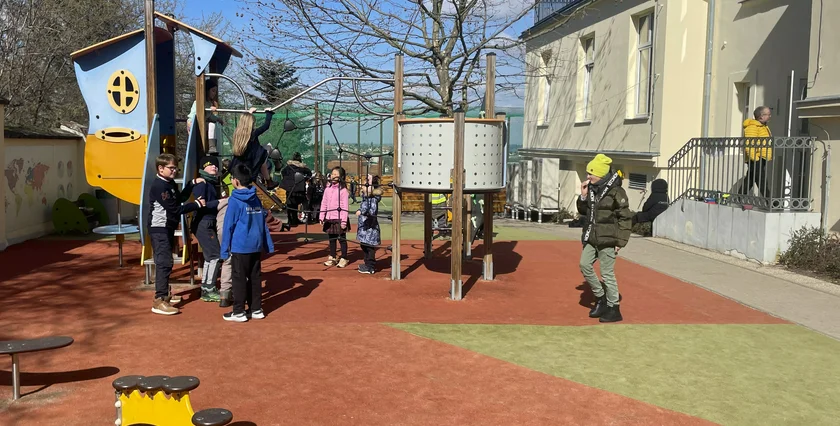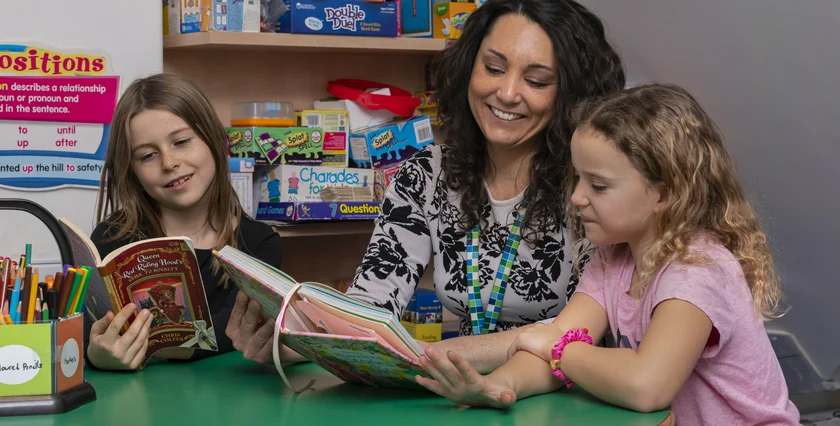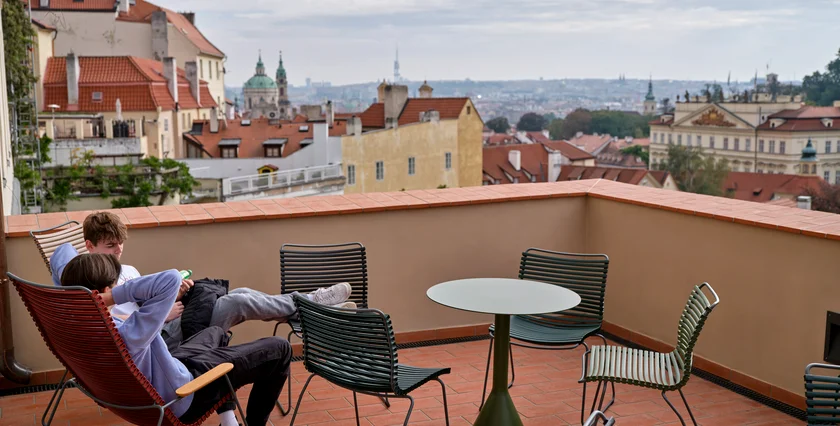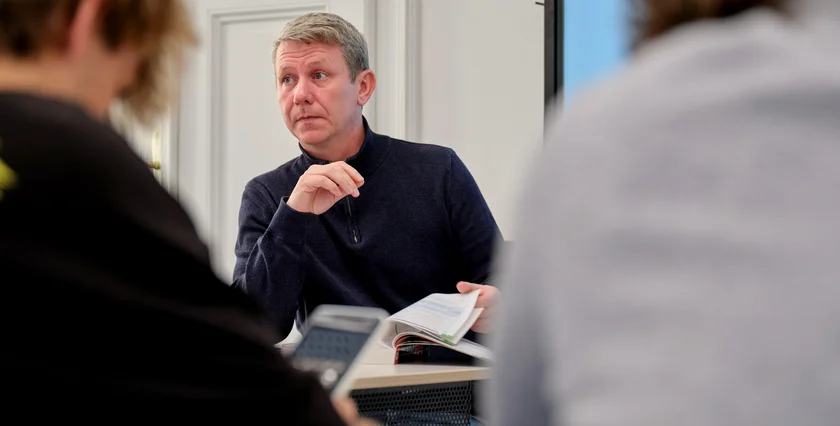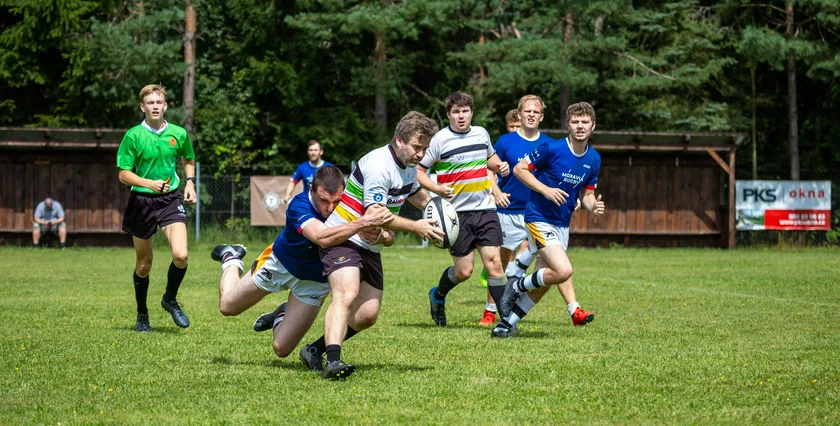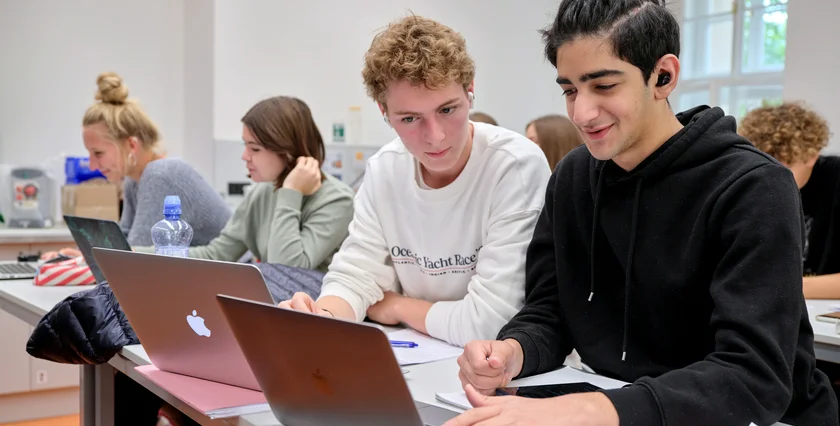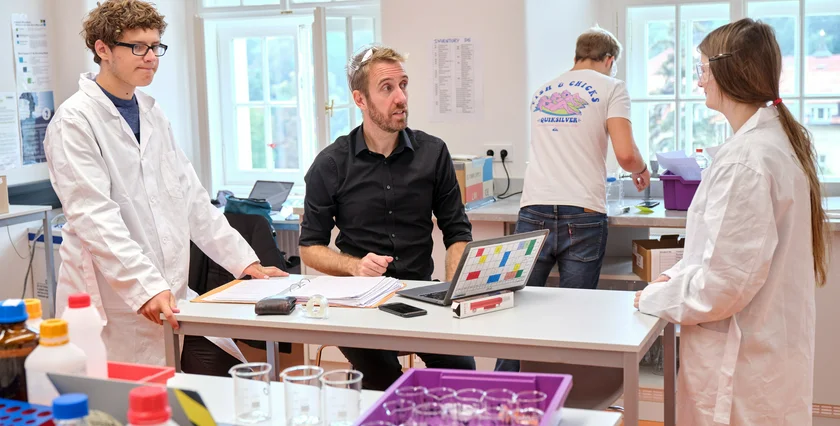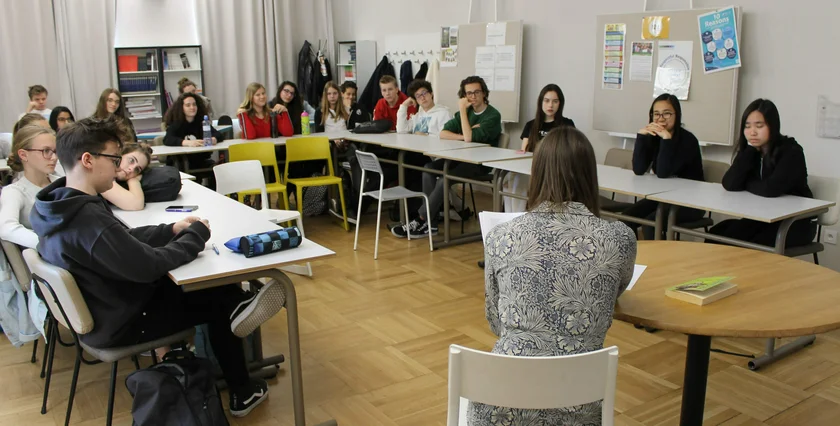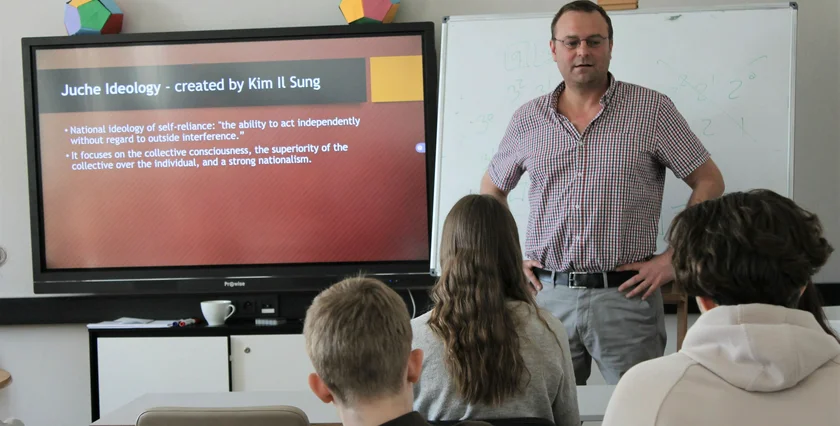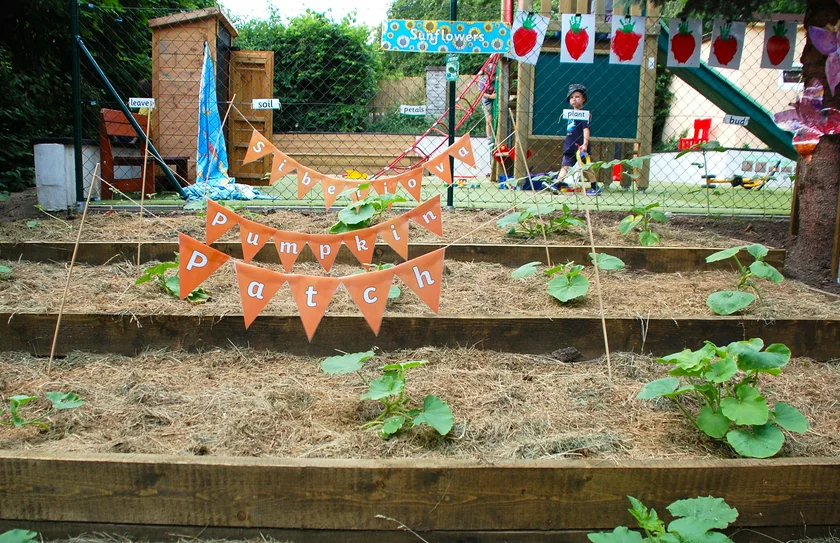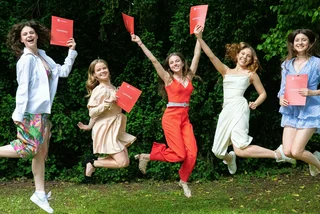Prague boasts various prestigious international schools, but you’d be hard-pressed to find one as perfectly situated as Park Lane International School. Comprising six campuses for nursery and preschool, primary school, secondary school, and International Baccalaureate students, the school’s buildings are oases of learning and positive development near Prague Castle.
Most pupils stay with the school from early years to graduation – from primary school and preschool buildings in Norbertov to a secondary school building near Malostranská and then to an IB center overlooking Petřín gardens and Strahov monastery. But what are the benefits of the long-term learning journey created by Park Lane International School?
To find out, Expats.cz went on a tour of the school, discovering that success is most robust and most sustainable within a supportive community, especially for young children setting out on their educational voyage.
Holistic development in primary school
Visit Park Lane’s quiet and secluded primary school building in Norbertov, Prague 6, and you’ll feel like you’ve stepped into an island of multiculturalism in the heart of the Czech capital. English is spoken as the shared common language by pupils in the corridors and playground. However, pupils come from 52 different nationalities, with American, British, Chinese, Czech, and German families the most common. All 21 class teachers are native English speakers with teaching qualifications from the UK or equivalents.
Even pupils who don’t have English as their mother tongue speak it like natives. Giving a tour of the premises, Year Five students Patrik, who has Czech parents, and Ariel, who comes from a Chinese family, exemplified the articulateness and strong communication skills developed at Park Lane.
These skills are fostered through small-group phonics classes in the early years, the teaching of all subjects by native English speakers, and a focus on creating a unified yet multicultural community.
“Families from so many backgrounds love it here at Park Lane because the way we distribute our class entries means we don’t get communities of specific nationalities in particular classes,” explains Joe Eyles, Whole School Vice Principal and Head of EYFS and Primary at Park Lane. “We make sure to deploy children from the same background across the two classes in each year group so they don’t default to their mother tongue. They are immersed in English.”
The building features a richly decorated, cozy library stocked with a wide range of books across fiction and non-fiction, with children encouraged to become proud bookworms. Corridors and classrooms are richly decorated with art assignments; Ariel and Patrik proudly point out their masterpieces during the tour. They also talk excitedly about the broad range of extracurricular activities the school puts on for pupils, from a “survival skills” outdoor trip to a street art workshop, a Victorian-themed experience day, and more.
At the same time, pupils’ emotional health and well-being come first; Patrik explains how a “Kindness Post Box” is used to share and discuss children’s feelings and emotions.
The strong sense of community is something that Mr. Eyles describes as a special characteristic of international schooling in general and Park Lane in particular.
“It’s not just the pupils, the parents, carers and the staff. That’s something I enjoy about international schooling. You learn so much about different nationalities and cultures and how languages influence our attitudes. The footfall of parents coming into the school is huge, quite different from Czech state schools and other international schools where I’ve worked. We encourage parents to come and interact with us.”
“At the same time, this community of parents provides help to new families. We take care to match new families joining us with another from the same country or city. This is the best way for them to find out what the school is like and whether it’s right for their child.”
Preschool for Early Years Foundation Stage development
Just a two-minute drive from the main primary school building is a preschool set in a similarly peaceful, leafy part of Prague 6. On our arrival, pupils were full of excitement; they had just been treated to a mini-zoo visit featuring meerkats and other cuddly creatures as part of “Animal Day.”
Such momentous occasions don’t occur every day, but children attending a free trial on any other day will still experience the preschool’s warm and friendly atmosphere. Classrooms are packed with arts, crafts, and learning resources; there’s a small library for an early introduction to reading and a well-kept play area outside the classroom, including a mud kitchen, providing plenty of space for outdoor fun.
While Year Two is a popular entry point for children joining Park Lane (corresponding with the first mandatory year of education in Czech schools), pupils who join at this earlier stage gain a head start in building their language capabilities.
“It’s hugely beneficial for them,” says Mr. Eyles. “We start formal Czech lessons in Reception; five lessons a week, one lesson every day. If they join us at that age, they gain nearly three years’ worth of formal Czech tuition before the mandatory learning age from native Czech-speaking trained teachers.”
The school’s integrated Czech learning program becomes part of the school day for all primary school pupils. “At Park Lane, Czech is a formal learning program, not a club or an optional extra. The result is a level of Czech that suits pupils as expats in this country. Just take, for example, one of our pupils from an Indian expat family; she jumped from our Czech-as-an-additional-language program to our full Czech learning program. This has helped with her residency and visa requirements.”
At Park Lane, Czech is a formal learning program, not a club or an optional extra. The result is a level of Czech that suits pupils as expats in this country. Just take, for example, one of our pupils from an Indian expat family; she jumped from our Czech-as-an-additional-language program to our full Czech learning program. This has helped with her residency and visa requirements.”
“As a British School Overseas (BSO) with an integrated Czech program, we’re like two schools in one. I taught previously at an international school in Colombo where the local language was an afterschool activity. Here, it’s part of the timetable. That makes a big difference,” Mr Eyles adds.
IB success built on solid foundations
Heading from the preschool and primary school buildings in Prague 6 to Park Lane’s modern International Baccalaureate learning center in Malá Strana brings home the full extent of Park Lane students’ developmental journey from early years to graduation, and the importance of a solid early years foundation to their later academic success.
Walking around the IB Center is a reminder of why so many parents in Czechia choose such international schools. Modern learning spaces offer stunning views encompassing Strahov Monastery and Petřín Gardens; the IB Center even has a small vineyard on a plot of land running down to the Sisters of Mercy hospital opposite.
For the many pupils who spend their entire school life at Park Lane, this building is where one long chapter of their life culminates. They also gain a springboard into future adventures; the IB Center houses a dedicated University and Careers Advisor helping students decide where to head next, whether within Czechia or abroad.
At the IB level, the bonds between pupils, parents, and staff that were forged back in preschool are further strengthened. From the oldest pupils to the very youngest, the Park Lane journey is defined by this sense of community, a togetherness among alums throughout later life.
This article was written in cooperation with the Park Lane International School. Read more about our sponsored content policy here.












 Reading time: 6 minutes
Reading time: 6 minutes 